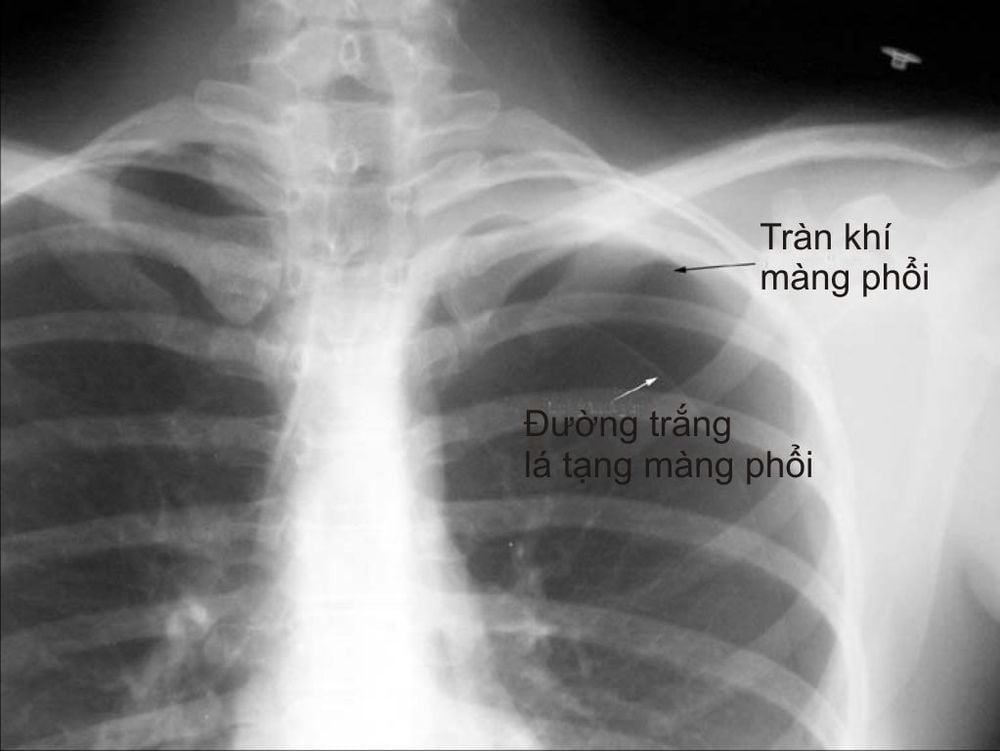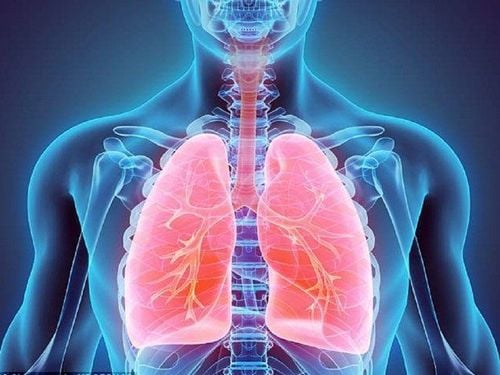This is an automatically translated article.
The article was professionally consulted by Master, Doctor Dang Xuan Cuong - Emergency Department - Vinmec Hai Phong International General Hospital. The doctor has 14 years of experience in the field of emergency resuscitation and poison control.Pleural effusion is a condition in which the amount of fluid in the pleural space is more than the physiological level. A small, increased volume of fluid may not cause discomfort for the patient or only mild shortness of breath. However, a large amount of effusion can be life-threatening.
1. What is pleural effusion?
The pleural space is a virtual space located between the lung and the chest wall (Between parietal and visceral). Normally in the pleural space there is a little fluid (about 10-15ml) that functions as a buffer system between the lungs and the chest wall, this amount of fluid is called physiological fluid in the pleural spacePleural effusion is a condition in which the fluid in the pleural space is more than the physiological level. The amount of fluid is small, increased may not cause uncomfortable symptoms for the patient or only mild shortness of breath, however, in case of large effusion, it is dangerous to the patient's life.
Pleural effusion has many causes and can be benign, but there are many cases of malignant pleural effusion, repeated many times can be fatal.
Causes of pleural effusion are divided according to classification
pleural effusion due to permeation pleural effusion due to exudate
2. Symptoms of pleural effusion

Người bệnh đau ngực nhiều, đau âm ỉ tăng dần theo thời gian
Patient has difficulty breathing while lying down. The degree of dyspnea depends on the amount of fluid in the pleural space, if the amount of fluid > 2 liters causes a lot of difficulty breathing, the amount of pleural fluid increases rapidly, causing acute dyspnea. Clinical examination revealed 3 decreased syndrome: decreased vocal vibrations, decreased alveolar murmurs, dull percussion. If the cause is pneumonia, pleurisy: Can occur at any age. Patients often appear with moderate fever or high fever, chest pain, dry cough or cough with sputum. X-ray or CT scan to determine whether there is free or localized fluid in the pleural cavity Determine the cause of pneumonia by testing sputum, biochemical testing of pleural fluid, bacterial culture... Causes due to cancer: Usually seen in middle-aged and elderly people. The common age is over 40 years old. Often accompanied by systemic symptoms of fatigue, loss of appetite, rapid weight loss, rarely fever, green mucous membranes, anemia... Patients have a lot of chest pain, dull pain that increases over time Dry cough or cough Blood Diagnosis is based on X-ray, CT scan, biochemical test of pleural fluid, test for cancer cells... If due to systemic causes, patients often have a history of previous systemic diseases: heart disease, malnutrition, cirrhosis... Often accompanied by polymembrane effusion, leg edema...
3. Is pleural effusion dangerous?
Whether a pleural effusion is dangerous depends on the cause of the pleural effusion and the extent of the effusion. If the cause is cancer, the treatment faces many difficulties because the effusion often recurs after pleural aspiration.
Tràn dịch màng phổi gây thiếu oxy nuôi dưỡng cơ thể
Cases of malignant pleural effusion often recur many times despite proper treatment.
Pleural effusion causes great consequences for breathing, causing lack of oxygen to nourish the body. May leave some sequelae such as: pleural thickening, pleural calcification, if the cause of tuberculosis also causes empyema. These sequelae affect the patient's breathing ability.
The early detection of the disease helps to treat the disease with high efficiency, so when there are signs such as shortness of breath, increased chest pain, etc., the patient should not be subjective but need to go to the medical facilities for examination to diagnose the disease early. .
Please dial HOTLINE for more information or register for an appointment HERE. Download MyVinmec app to make appointments faster and to manage your bookings easily.













